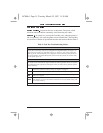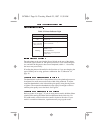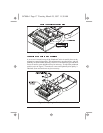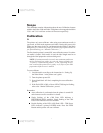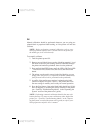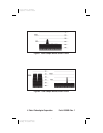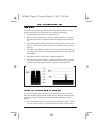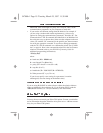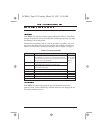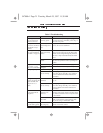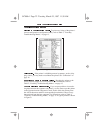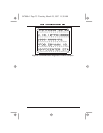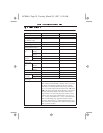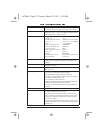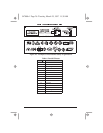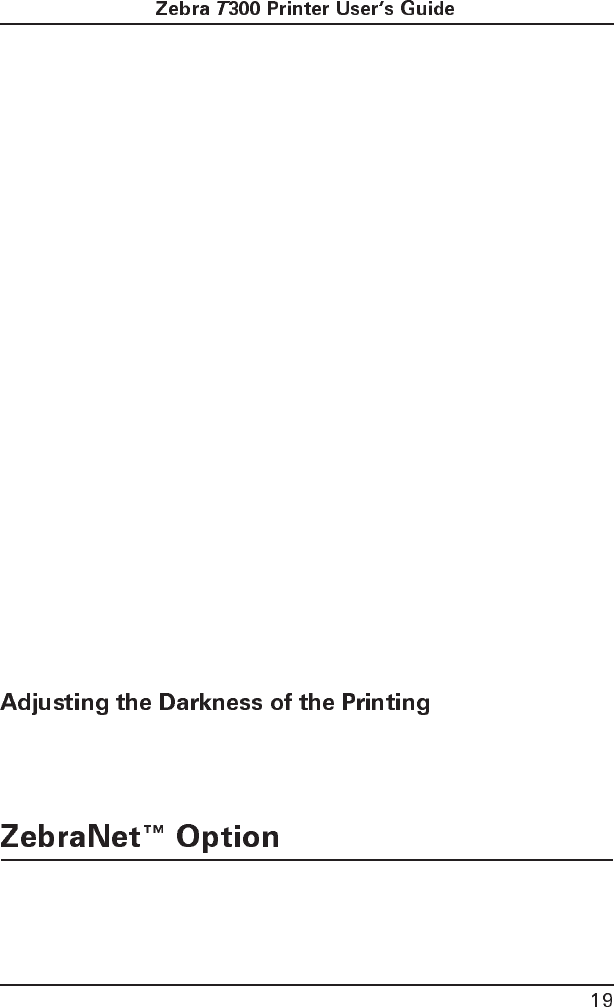
9600 baud, 8 bit word length, no parity, and 1 stop bit. Then, set the
communications parameters on your computer to match this.
• If you need to use different settings than the defaults (for example, if
you are using a modem with certain requirements), you have two
options for setting the communications parameters. Send the ^SC “Set
Communications” ZPL II command (described below) at 9600 baud via
the serial port set up as shown above, then reset the computer to the new
values. Or, send the ^SC command via the parallel port, then reconnect
for serial port operation as needed. To save these settings permanently,
send the ^JUs ZPL II command or re-calibrate the printer. See “Calibra-
tion” on page 18. Here is the command description for the Set Commu-
nications command (refer to your ZPL II Programming Guide for
additional programming information):
^SCa,b,c,d,e,f
where
a = baud rate (110 - 19200 baud)
b = word length (7 or 8 data bits)
c = parity (N = none, E = even, O = odd)
d = stop bits (1 or 2 )
e = handshake (X = XON/XOFF, D = DTR/DSR)
f = Zebra protocol (Y = yes, N = no)
If you do not specify a new setting for a parameter, it remains
unchanged (it does not change to the default value).
If you are using BAR-ONE or other software, adjust the relative darkness
setting as indicated in that software. Or, if you are using ZPL II, send the
^MD (Media Darkness) or ~SD (Set Darkness) ZPL II command.
You may choose to network your Zebra T300 printer. Contact your distribu-
tor for information about the ZebraNet micro print server—ethernet connec-
tivity for your Zebra T300 printer.
547000r1 Page 19 Tuesday, March 25, 1997 11:38 AM



